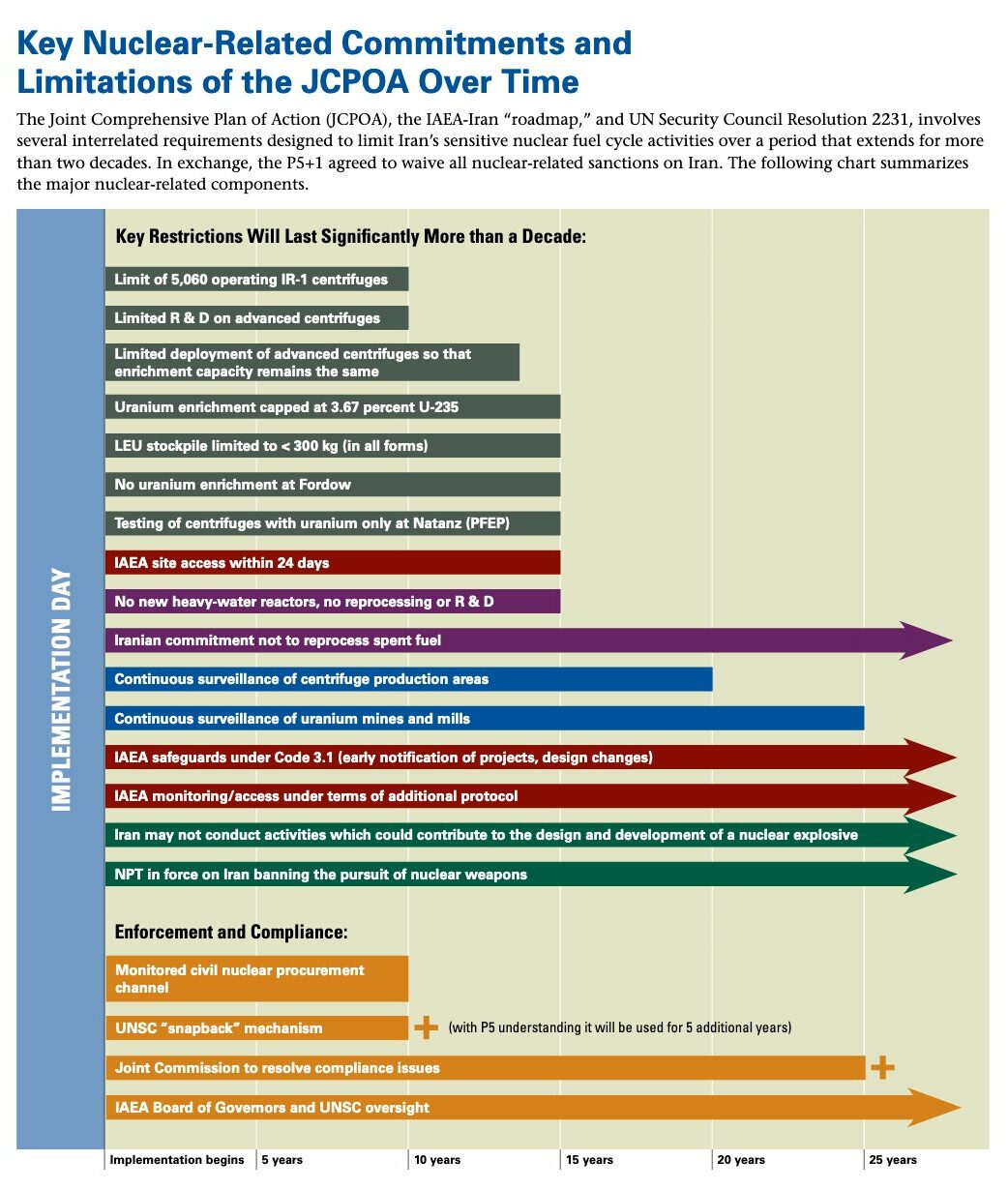Trump’s Policies on Iran Failed
The JCPOA was working when Trump unilaterally withdrew
The sole purpose of the JCPOA was to prevent Iran from acquiring nuclear weapons. The JCPOA accomplished this, as confirmed by the invasive IAEA inspection regime and 24/7 on-site cameras, which have shown that Iran was operating only some older-model centrifuges, had significantly reduced its stockpile of enriched uranium, limited its centrifuge research and development programs, and filled its heavy-water nuclear reactor with concrete. Whereas before the JCPOA Iran was only months away from having enough material to produce a bomb, these steps pushed the breakout time to 12 months. Under the JCPOA inspection regime, we had access to Iran’s complete supply chain, which made it almost impossible for Iran to develop a covert program.

Trump made it easier for Iran to get a nuclear weapon
Before the signing of the Joint Comprehensive Plan of Action (JCPOA) in 2015, it was estimated that Iran’s “breakout time,” the time it would take for the regime to produce enough highly enriched uranium to make a single nuclear weapon, was 2 months. Under the JCPOA Iran’s breakout time grew to 12 months once the deal was in full force. Since President Trump foolishly pulled out of the deal, Iran has methodically pushed up its breakout time to a point where they could soon only be a few weeks away from having enough material to build a nuclear weapon.
Pulling out of the Iran Deal made Israel less safe.
Trump’s failed withdrawal from the Iran Deal has allowed Iran to move closer to a nuclear weapon than was the case in 2017. Israel’s military is once again preparing for possible offensive action against Iran and in fact, there is “strong support for the JCPOA in the Israeli defense community,” including from former IDF Chiefs of Staff. America’s failure to live up to its commitments reduced our influence throughout the world, making the U.S. a less effective ally to Israel.
Pulling out of the Iran Deal was a strategic failure for American leadership
Walking away from the Iran nuclear deal with nothing to replace it was a failure. American influence has been weakened. Iran is closer to building its own nuclear weapon as they have since exceeded limits to its stockpile of low-enriched uranium, began enriching uranium to higher concentrations, developed new centrifuges, and resumed heavy water production.
No better alternative to the JCPOA has been proposed. The alternative is either a nuclear-armed Iran or war that would eventually lead to a nuclear-armed Iran.
Members of Trump’s cabinet (such as Defense Secretary Mattis, Secretary of State Tillerson, and National Security Adviser H.R. McMaster) hesitated to back away from the deal for precisely this reason, but once those cabinet members had been replaced with Trump sycophants, the Trump administration decided that it was more important to appeal to their right-wing base, fulfill an unwise campaign promise, and soothe Trump’s fragile ego than to safeguard U.S. and Israeli security. The Trump administration never made any serious efforts to renegotiate a new deal following its withdrawal from the JCPOA. The alternative to a diplomatic deal that would severely curb Iran’s nuclear program is either a nuclear-armed Iran or a military conflict that would fail to significantly hamper Iran’s nuclear program and would further motivate Iran’s nuclear ambitions.
IRAN RESOURCE CENTER
